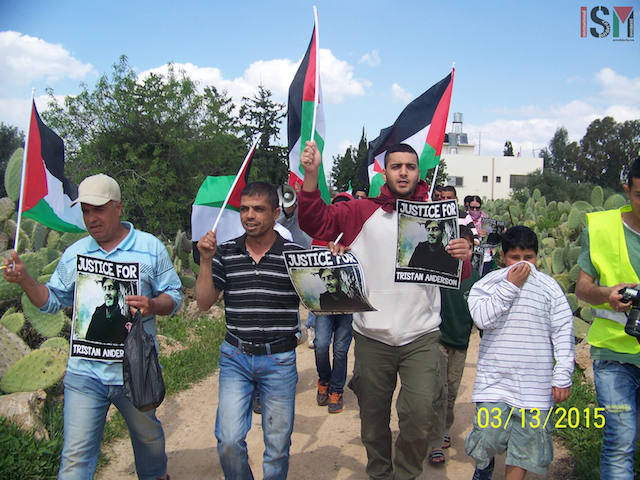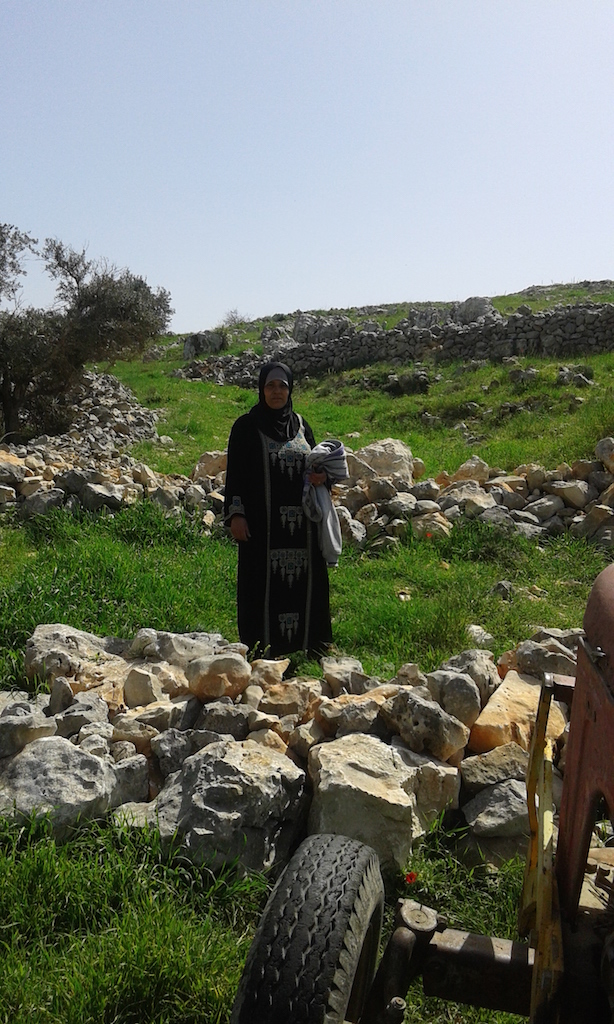-
Palestinian protesters honor Tristan Anderson on 6th anniversary of his shooting
16th March 2015 | International Solidarity Movement, Ramallah Team | Ni’lin, Occupied Palestine During last week’s Friday demonstration in Ni’lin the inhabitants of the village commemorated the anniversary of US activist Tristan Anderson’s shooting during a protest in the village six years ago. At the demonstration Israeli forces fired several hundred tear gas grenades and canisters, rubber-coated steel bullets, and […]
-
Ongoing harassment and restrictions on farmers around Nablus
12th March 2015 | International Solidarity Movement, Nablus Team | Burin, Salim, and Awarta, Occupied Palestine Early spring marks an important time of the year for farmers around Nablus, where critical work must be done to ensure a quality olive harvest in October. In high tension regions, where farmers risk settler attacks while accessing their land, District Coordination Offices […]
-
Israeli forces raid yet another family’s home in Tel Rumeida
11th March 2015 | International Solidarity Movement, Khalil Team | Hebron, Occupied Palestine Yesterday on the 10th of March around 1 AM in occupied Al-Khalil (Hebron), Israeli occupation forces raided the home of human rights activist Imad Abu Shamsiya and his family. The soldiers turned the house upside-down; the family watched as soldiers broke one of their cameras and stole […]
Action Alert An Nabi Saleh Apartheid Wall Arrests BDS Bethlehem Bil'in Cast Lead Demonstration Denial of Entry Ethnic Cleansing Farmers Gaza Global Actions Hebron House Demolition International law Israeli Army Jerusalem Live Ammunition Nablus Ni'lin Prisoner Ramallah Rubber-coated steel bullets Settlement Settlers Settler violence Tear-Gas Canister Video



